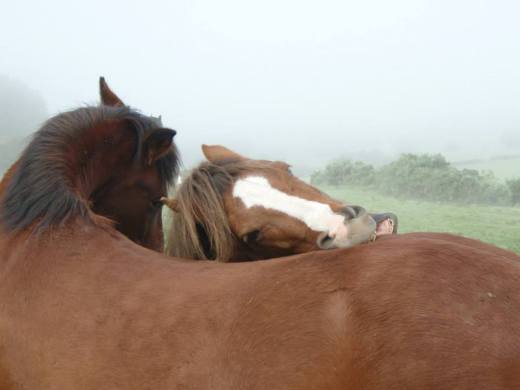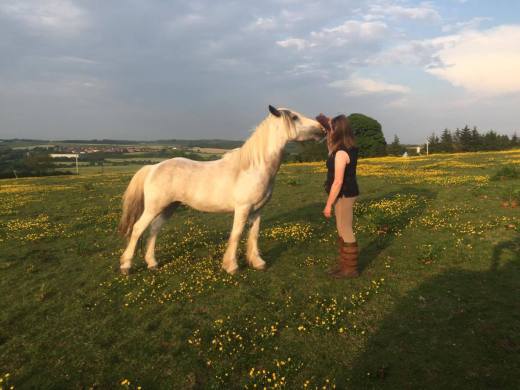
“The capacity to exercise control over the nature and quality of one’s life is the essence of humanness”, Albert Bandura, 2001.
Have you ever had a splinter in your finger? A horrible little pinprick, just underneath the skin. You worry at it, you suck your finger, you try to grasp it between your nails, but nothing shifts it and it seems to affect everything you do. In the end, there’s nothing for it, you have to get it out using a needle.
Now, that’s where things get interesting. The splinter under the skin, or the bit of grit in the eye – they’re under your skin, they’re in your eye. But you are starting to get the feeling that you’re going to have to ask someone else to get them out for you. You don’t often put the feelings into words, but what’s there to the fore is that nobody else understands how it feels to be in your skin. You know that when they touch your eye with their finger, they can’t feel it, and they might not stop before hurting you. You know that it’s going to hurt when they pick the splinter out, and because they can’t feel the pain, they might just poke too hard.
We all live inside our own skins, and have an awareness of our own bodies. We also have a consciousness that decides what we do, when we do it, how much of it we do, and we know that we act to get the things in life we need and like, and to avoid the things in life we fear and dislike. We walk around feeling in control. How fast to walk? As fast as I need to get where I’m going. How hard to scratch an itch? Hard enough to relieve it, not so hard as to hurt. How long to stay in the sun? Long enough to enjoy the warmth, not so long that I overheat. How long to swim? Long enough to enjoy the silkiness of the water on my skin, not so long that I get chilled.
The feeling of control over our destiny is sometimes called “agency”, and it’s often a feeling we only recognize when it’s not there. There’s actual fear in the splinter removing scenario, because we’ve handed over our “agency” to someone else, and even though we trust them, it’s hard to feel we’re not in control of our body. It’s only a small subset of people that we trust enough to ask for splinter removal help: for horses, it’s only a small subset they trust enough to allow teeth to be used in mutual grooming!
The flip side of this is what happens if we feel we’ve lost control: if we believe our actions are having no effect on the world, we give up. We stop trying, and we shut down. Many horses reach this state through our training. I’m fairly sure that it’s rarely what we intend: most of us want our horses because of who they are and what they do, we don’t want unquestioning machines. We understand the feeling of loss of control ourselves, but often fail to see when it happens to the horses we train and ride.
This is something that I’ve been thinking about for a few weeks, because of a lovely young horse I’m training. He has no trust or understanding of humans. I don’t know what’s happened to him: he may have had minimal handling, but by people who think that you can get a horse to accept things simply by doing them to the horse. Trapping them and putting on a headcollar or a bridle, trapping them and trimming their feet, trapping them and brushing them, injecting them, hosing them, spraying them. All the things we do to horses as part of our duty of care for them. Equally, he may have had almost no handling at all, and is now learning about people from a position of suspicion. When I met him first, he was trapped: he was alone, in a stable, with no other horses around him, in a situation where he was almost helpless and very fearful because he had no idea of what was going to happen next, nowhere to run, nowhere to hide and no herd to run or hide with.
Working with him, I realised there was something that horses and humans had in common that I hadn’t yet included in a blog post. Because as the weeks have gone by, I haven’t done anything to him at all. I have tried very hard, even when he was in the stable, not to do anything to him, but to allow him to choose what to do to me and with me. If he looked at me, I rewarded him. If he touched my hand, I rewarded him. Once he was out of the stable (and that took a leap of faith on the part of his owner, who like most horse owners believed that a horse outside had no reason to want to be with people), if he moved towards me, I rewarded him, if he walked with me, I rewarded him. We’ve moved on now to thinking about headcollars, brushes and – most difficult of all – human hands touching him. But I have stayed still, and allowed him to act, and rewarded every time he interacts with me. He touches the headcollar, he puts his head near my arm, he puts his nose in the open noseband. He touches the brush, either with his nose, with the side of his face, with his head dropped so it brushes between his ears. Now he will even place his head so my arm covers his eyes, a huge piece of trust in a horse who needs his vision to stay safe. Every single one of these things, I allow him “agency”. I do this because I want him to have confidence and the freedom to explore. One of the best days so far was the day I left the brush on the ground while getting other things ready, and he picked it up and ran off with it! He had got the confidence to feel playful while I was nearby!
I know he’s not my horse, and I have an agenda: I have to “make” him ready enough for the human world that he will be able to tolerate the things that will be done to him in the future, by people who haven’t stopped to think that there might be a way to achieve what they need in terms of being able to care for him while still involving him in the process. So, for example, he will need to learn to stand when tied up, because people will want to restrain him so that they can brush his beautiful mane… And yet, as humans, we understand perfectly with young children that there comes a day when a child refuses to allow you to brush their hair, because they want to do it themselves… they know how it feels to have something done to them, and they want the control themselves. We can teach children so that they can take control… and we can also teach our horses in such a way that they have more control. We can teach them to tell us when they’re ready for us to do things, rather than making that decision for them, and the magical thing about this is that if we do it right, it doesn’t make them less likely to participate, it makes them more willing and interested to work with us.
But the point of this blog post is that in order to do that, we have to give up some of our own control, some of our own agency. We have to step back and acknowledge that another animal – a member of another species – has feelings and opinions about what we want to do to them, just as we do when someone wants to do things to us without our permission. And we need to invest the extra time – in a world that has us under constant time pressure – to work with them so that they want to be brushed, have their hooves trimmed, have a headcollar put on. Rather than having a horse who puts up with what’s done to him, because we need it done now, we need to give him control of the timescale so that in the end, he can say he’s happy with the process.
It’s through giving control away that we learn the real way to be the master of our fate, the captain of our soul: we’re not independent, we’re interdependent. Being able to depend on others at the same time as acknowledging that they need to have control over their own lives too, is what makes us complete human beings.


Love the blog, whenever I get a new horse into my herd, I feed and that’s it. It’s a wonderful feeling when they come to you of their own accord and aren’t pushed into being petted. I find horses are very inquisitive and if you sit long enough in a field they will come for a nosey
Me too. I love when a horse finds me interesting – when it’s not pushed on them, I love how they choose to come up and explore me with their whiskers!
Love the Invictus reference.
It’s considered old fashioned to like Victorian poetry, but once you’ve read Invictus, it sticks with you for life, and has meaning in lots of different situations 🙂
Reblogged this on Evolution Equine Behaviour and commented:
Beautifully written, a psychologist’s perspective on the equine condition. Well worth reading, thoughtfully!
Reblogged this on Over The Edge and commented:
I always enjoy Dorothy’s blogs. This one is particularly close to home. This is one of the prime motives here at Over the Edge Farm, to find out how horses choose to interact with humans when they are “Free Agents”. One thing is for sure, the more I relinquish control, the more they choose to be with me. It is only our fear that inhibits the connection.
I’ve missed your blogs, glad to see you back. I re-blogged you as I couldn’t say it better myself 🙂
I, too, always enjoy your blogs!
There’s certainly a lot to find out about this topic. I love all the points you
made. http://www.yahoo.net
Pingback: Ik ben meester over mijn lot – Discourse with Deejay
Excellent post. Thank you! 🙂